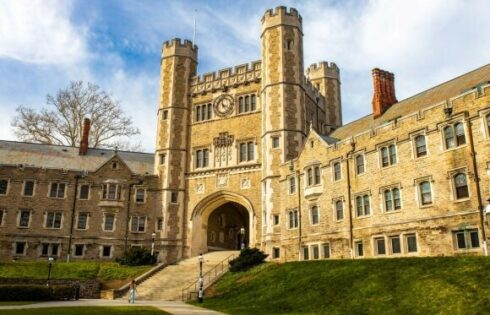
Policy analyst warns college’s open curriculum risks fragmented education
In fall 2025, Amherst College students can take a course to learn about “critiques of imperialism and racial inequality in U.S. history” by reading comic books.
“What can we learn about gendered and racialized depictions within comic books? As a catalyst to encourage looking at history from different vantage points, we will put comic books in conversation with the history of race and empire in the United States,” the course description states.
Titled “The History of Race, Gender, and Comic Books,” the class will require students to read comic books as “primary sources and products of a particular historical moment.”
“[O]ther times [they] will be reading them as powerful and yet imperfect critiques of imperialism and racial inequality in U.S. history,” the description states.
Beyond comic books, students will survey “a wide range of material including academic texts, traditional primary source documents, and multi-media sources.”
The course is offered by the school’s history and sexuality, women’s and gender studies departments.
However, a University of Chicago history professor criticized the course.
Professor Rachel Brown told The College Fix that this course is “predicated on a particular theoretical frame” which “will constrain what students are allowed and/or encouraged to discover in the texts.”
“Using different kinds of source material is what we do in history,” she said. Sources are meant to be read as “products of their own time, and therefore, as clues.”
“It is a reflexive hermeneutic — letting the sources show you things about their making, as a way of learning about how they reflect or challenge their own time,” Brown said.
Thus, approaches that emphasize “theory” are dangerous as they “presume the lesson to be learned without letting the sources themselves speak.”
The College Fix reached out to Amherst College, the history department, the Sexuality, Women’s and Gender Studies department, the professor of the course, and the student newspaper twice each via email in the last two weeks to learn more about the specifics of the class and how the topic was chosen. None responded.
Offering a wider perspective, Heritage Foundation Policy Analyst Madison Doan told The College Fix via email that this course stems from a deeper issue at Amherst College – that of an open curriculum.
Specifically, Doan said that because of Amherst’s flexible academic structure, “this could be a student’s sole exposure to historical study, with no broad requirement to learn about foundational aspects of U.S. history or Western civilization.”
She said in 2016, President of the American Council of Trustees and Alumni Michael Poliakoff criticized Amherst College’s open curriculum for its “unchecked expansion of course offerings.” ACTA is a nonprofit advocating for academic excellence, accountability, and free expression in higher education.
Doan quoted Poliakoff, who said, “What we’ve seen is the multiplication of course options without rhyme or reason or any real respect for the kind of intellectual nutrition that students need.”
“Critics, including ACTA, argue that such an unstructured approach leads to what they call a ‘thin and patchy education’ – one that lacks a guarantee that students have mastered essential facts or skills,” she said.
While this course at Amherst College “may provide some insights for students unfamiliar with comic books,” it ultimately points to a bigger problem with students’ historical education in general, she said.
The course will be taught by Professor Christine Peralta, who “highlight[s] ways of knowing that are often marginalized, such as intellectual contributions by and about women of color,” according to Amherst’s website.
In her biography, the professor states that she “critique[s] biases in knowledge production by having students examine documents that sound objective, but are premised on flawed understandings about racial differences.”
In addition, she “encourage[s] students to examine the ways American imperialism is embedded in our everyday lives.”
The college’s history department also features an “Anti-Racism Statement” pledging that at least 50 percent of its courses will incorporate the theme of “race.”
MORE: UMinn proposes ‘Race, Power, and Justice’ course mandate
IMAGE CAPTION AND CREDIT: Student reading comic book in library; Filipe Sabino/Canva Pro
Like The College Fix on Facebook / Follow us on Twitter






Please join the conversation about our stories on Facebook, Twitter, Instagram, Reddit, MeWe, Rumble, Gab, Minds and Gettr.